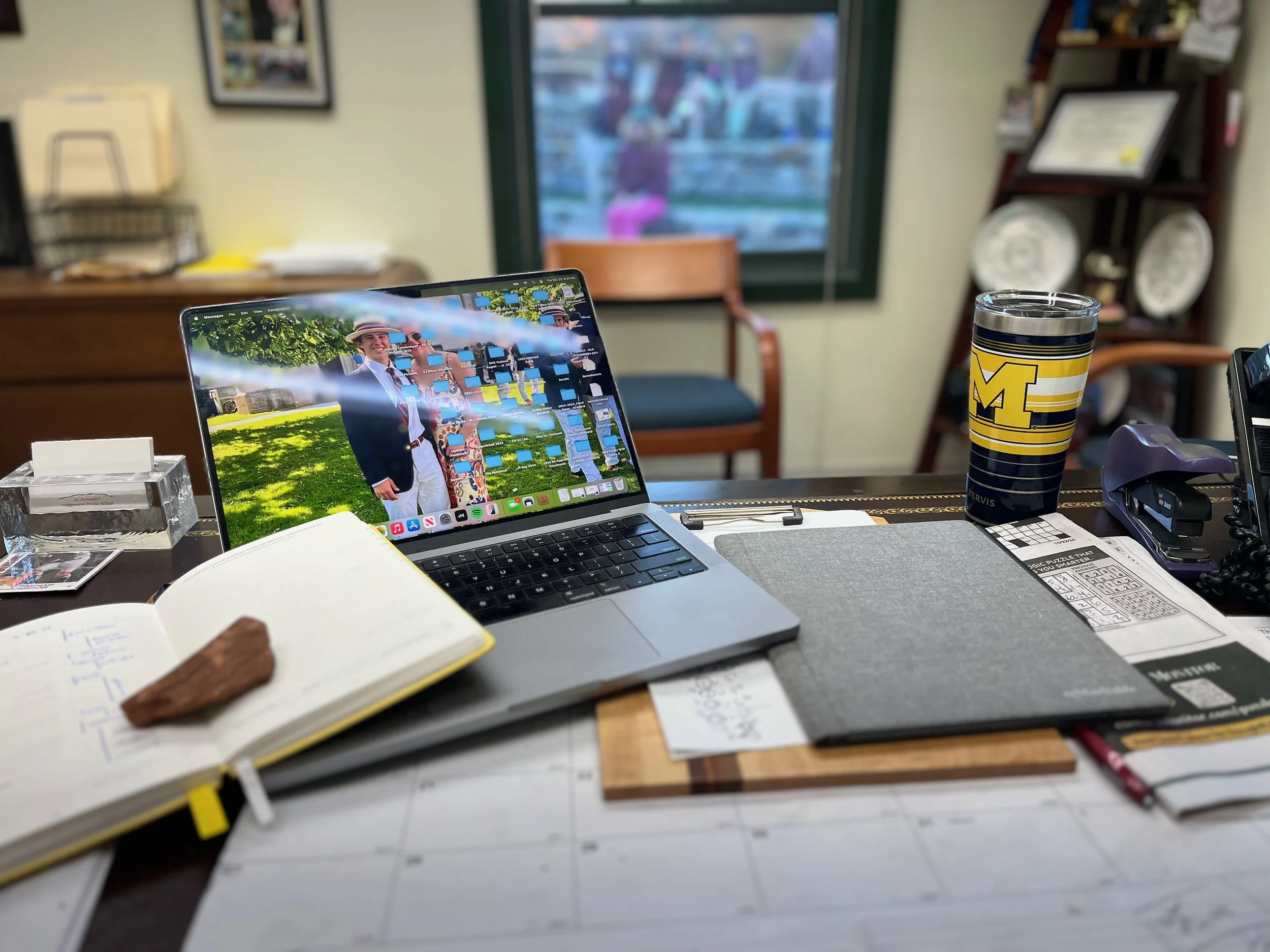It is remarkable how quickly the temperatures can change this time of year. Last Friday afternoon, I was standing on the sidelines of my daughter’s lacrosse game and it was frigid. This week, the sun was out in full force and temperatures were mild, to say the least.
This week, we have officially started to hold Community in The Knoll again. Starting each day outside really does wonders. Especially when we take our moment of intention, which is when we pause to set an intention for the day. Even the squirmiest of middle schoolers takes this seriously, and the sounds of birds, neighboring farm animals and even the wind, make the moment that much more special.
Twice this week, I was able to hold class in The Knoll. While I could have just as easily conducted my lesson in the history class, the change of setting made it seem like it was a treat to have class in The Knoll. We did the same work, but the novelty of class outside following a long winter made it all seem more special.
Throughout the winter, The Knoll sat dormant. Mother Nature has, once again, given us the green light to begin using the space, and I can’t wait to see the new and exciting ways that The Knoll will become a part of our community!

